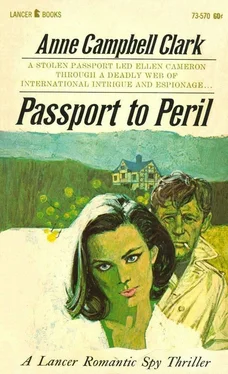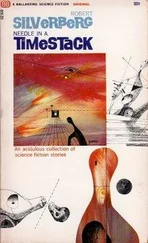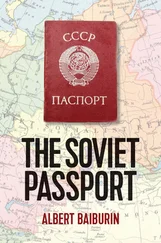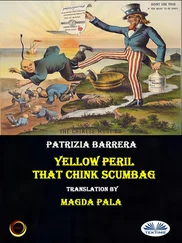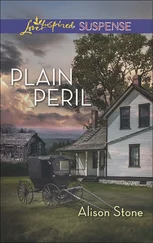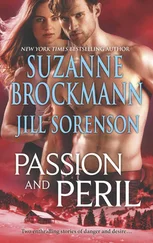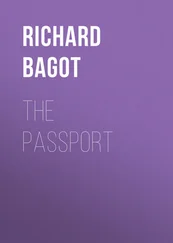Her fingers picked out chords and melodies. She did not select songs consciously but sat with her eyes closed and let the guitar speak for her. She was in Dublin, and she thought about the songs that had come out of Dublin, songs of the Easter Rising of 1916, songs of an earlier rising in Dublin, when a Dublin boy named Robert Emmet tried to start an insurrection in 1803, just five years after the glorious rebellion of ’98. Spies and informers infiltrated his movement, and the British let it gather just enough momentum so that they could have an excuse to crush it once and for all, and hang Emmet in the bargain.
She remembered his speech from the dock. “I have but one request to ask at my departure from this world; it is the charity of silence. Let no man write my epitaph, for as no man who knows my motives dare now vindicate them, let not prejudice nor ignorance disperse them. Let them and me repose in obscurity and peace, and my tomb remain uninscribed, until other times and other men do justice to my character. When my country takes her place among the nations of the earth, then, and not until then, let my epitaph be written. I have done!”
And her fingers found the right notes, and she sang.
The battle is over, the boys are defeated
Old Ireland’s surrounded with sadness and gloom
We were defeated and shamefully treated
And I, Robert Emmet, awaiting my doom
Hanged, drawn, and quartered, sure that was my sentence
But soon I will show them no coward am I
My crime was the love of the land I was born in
A hero I lived — and a hero I’ll die...
Later she changed her shoes and went downstairs for a walk and a bite of lunch. The woman with the heart-shaped face was dusting the tables in the parlor. “I heard you singing ‘Robert Emmet,’” she said shyly. “I did not know that they knew our old songs in America.”
“I know a few of them. I hope I didn’t disturb you...”
“Surely you did not. And how would a song so sweetly sung disturb a person? He was a Dublin boy, Robert Emmet was. It was in Thomas Street that he rallied his men and in Thomas Street that they hanged him, and you could walk from here to there in half an hour. My father used to sing that very song, him and my uncles. And ‘Kevin Barry,’ but of course you know that one, don’t you?”
“Yes.”
“And doesn’t everyone know ‘Kevin Barry’? There was a time you couldn’t turn on the radio without hearing it, unless it was the BBC you were listening to. Not likely you’d hear it there!” She laughed. “And the song for Sean Treacy? Him it was who fired the first shots of the Troubles, him and Dan Breen, and then rescued his friend Sean Hogan at the railroad station of Knocklong. Sean Hogan was taken by the Auxiliaries, and Sean Treacy took him right from the train, out from under their eyes. Tipperary boys they were, all of them, but Sean Treacy was shot down in the streets of Dublin, shot dead by the Tans, and not far from this very house, either. Do you know the song?”
“I don’t think so.”
“Oh, if I had half a voice I would sing it for you.”
“I’d love to learn it.”
“Oh, but I’m no singer. I’ve an agreement with the Clancy Brothers, don’t you know. They don’t rent out rooms and I don’t sing songs, and it’s a sight better for everyone that way.”
“Could you teach me the song?”
“You’ll be laughing at my voice.”
“Oh, no, I wouldn’t. Let me get my tape recorder so that I don’t miss any of it. Please?”
“You wouldn’t be sending me up, would you?”
“No, I mean it.”
“Well...”
Ellen hurried to her room, got her tape recorder, and threaded a roll of tape onto the spool. She brought it downstairs and sat in the parlor, and the woman put down her dust cloth and perched on the edge of a massive armchair with a timid smile on her lips. She led into the old ballad gradually, talking of Sean Treacy and just where he had been killed and by whom. When she finally worked into the song itself she sang it beautifully. Her voice was thin, and she missed occasional high notes, but the tune carried sweet and clear, and the words were delivered with an air of conviction that brought the spirit of the Black and Tan days sharply into focus. The woman sang as she spoke, in a soft and gentle Dublin accent that was as far removed from the tones of the rest of Ireland as it was from the stage-Irish brogue of a Barry Fitzgerald movie.
Ellen sat very still, absorbed in the song, caught up in the dying lament of Sean Treacy for “Tipperary so far away.” This was an extraordinary country, she thought, where a woman could sing for the pure joy of singing, where patriotism came from the heart rather than being summoned up perfunctorily at American Legion clambakes and Fourth of July picnics.
“That was beautiful,” she said when the song had ended. “That was truly beautiful.”
“Oh, now.”
“I mean it.”
“Ah, you must have been to Blarney Castle on your way to Dublin. And listen to me singing with a whole house to clean! But if it’s songs you want, you’ll find them in Ireland. Though there’s few who’ll sing them as sweetly as you.”
Back in her room, Ellen put the tape recorder away, then took up the guitar for a moment and picked out the melody line of “Sean Treacy.” She would learn the words later, from the tape. It wasn’t a song she expected to sing often. It was more a man’s song and less the sort of thing she could put over effectively, and she did not expect to record it. But she might sing it now and then in concert, and she would certainly enjoy learning it and singing it herself.
Reluctantly, she returned the guitar to the case and walked down the stairs and out of the house. It was still raining, but not heavily enough to make her want her raincoat. She walked on Amiens Street as far as Talbot Street, then turned right and walked half a block to a small café. She had fish and chips and a pot of strong tea. The fish was whiting, very fresh and fried to a turn. She finished it all and drank two cups of tea, and when she left the café the sun was shining and the rain had halted.
She spent the afternoon walking until her feet ached. She began on O’Connell Street, the main artery of Dublin, and stood for a moment in front of the General Post Office where Padraig Pearse proclaimed the Irish Republic on Easter Monday in 1916. She walked on, past old hotels and new office buildings, airline ticket offices and travel bureaus, shops and cinemas and restaurants. She paused in the middle of the O’Connell Street Bridge — the bridge was wider than it was long — and watched the gulls sweeping over the Liffey. She walked on the quays along the southern bank of the Liffey, looked in the windows of antique shops, passed workmen’s pubs where laborers sat with their pints of stout. She found Christ Church Cathedral, thinking at first that it was where Jonathan Swift had presided for so many years, then remembering that he had been Dean of St. Patrick’s instead. But she entered the cathedral anyway and stood at the tomb of Strongbow, the Norman earl who had led the first English invasion of Ireland in the twelfth century.
The cathedral was empty. She stood quite alone by Strongbow’s tomb and looked from it to the altar and back again. Not even in London, at the Tower or at the Abbey, had she felt herself so forcibly gripped by the presence of History. The bones of great men, she thought.
She walked for hours. Now and again it would begin raining. Then the rain would cease, only to resume again before long. She walked on through it, oblivious to it. She had bought a small tourist’s map of Dublin, and from time to time she would dig it out of her purse and try to figure out where she was and what landmark she could search out next. But each time she quickly let herself get lost, wandering down whatever old street appealed to her, trying to immerse herself entirely in the city. It was as though she were trying to swallow the city whole, to gulp it all down at once and digest it at her leisure.
Читать дальше
